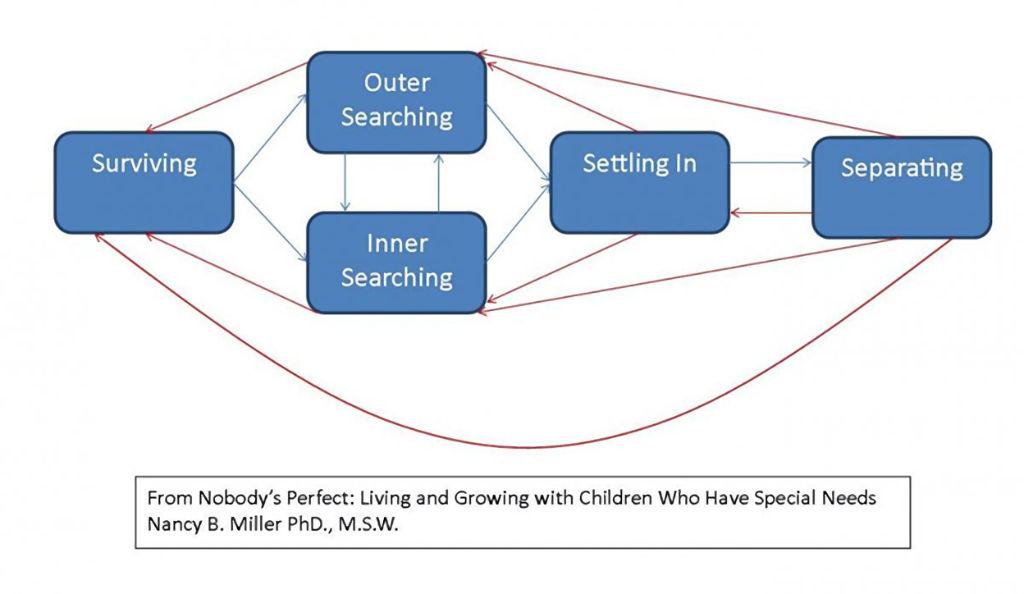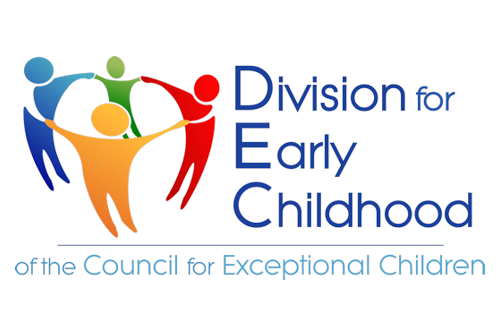Module 1
The goals of Family Connections are:
- To strengthen and empower families by providing support, encouragement and knowledge to parents of infants and toddlers enrolled in Connecticut’s Birth to Three System through a volunteer mentor parent- You!
- To provide emotional support, empathetic listening and information about resources to parents of infants and toddlers receiving Birth to Three services.
Training goals for Parent Mentors:
- To gain an understanding of CPAC, Family Connections program goals and operations
- To gain skills and knowledge that help you become effective mentors
- To reflect on competencies needed to be effective parent mentor
- To understand role of peer mentor
- To obtain information about local, state and national resources for parents and families
Introduction
Please watch the following video:
»
Becoming a Support Parent
Module 2
How Does Family Connections work?
- CPAC’s Family Connections connects Connecticut parents of children with developmental delays or disabilities enrolled in Birth to Three with experienced parents who will provide empathetic listening on a one-to-one basis for a determined period of time.
- Parents are referred to the program through Birth to Three agencies across the state of Connecticut, social workers, case managers, word of mouth, or self-referred.
- The Family Connections staff at CPAC facilitates connections by
matching parents with trained supportive parents who can provide
empathetic listening and emotional support. Typically, parent
mentors are further along in their journey with their child and
have received services through Birth to Three as well. Matches
are based on the needs of the family and may include the following
criteria:
- Child’s areas of concern and/or disability
- Preferences of the mentor and parent
- Gender
- Commonly shared values
- Parent mentor experience and qualifications
- Age of the child
- Geographic proximity
- Language/cultural background
- Family structure
Please watch the following video:
»
How Does Parent to Parent Support Work?
Module 3
What is a parent mentor and why is it important?
Parent mentors serve as a role model; they guide, teach, coach,
provide encouragement and partner with their parent mentee. They
understand parent mentees as they have gone through similar experiences.
Parent mentor are crucial, they are able to help with:
- Decrease sense of isolation
- Show parents they are not alone
- Show parents that support and resources are available
- Assist parents in difficult times
- Assist parents to become confident and competent in parenting a child with special needs
- Increase knowledge of resources and services available
- Enhance quality of life for family and child
Peer support is a critical component of a parent's overall support
system, supplementing the support of family members and professionals
such as doctors, therapists, and educators. The role of the support
parent is unique, in that only another parent of a child with a
disability can appreciate both the challenges and joys inherent
in such a relationship.
»
Connecting with Other Families - A Mom's Story
Please watch the following video regarding Parent Mentor
Qualities:
»
Characteristics of a Support Parent
Module 4
What are the characteristics of an effective mentor?
Effective Parent mentors are:
- Good listeners
- Flexible
- Non-judgmental
- Resourceful
- Respectful
- Honest
- Empathetic
- Encouraging
- Good Communicators
Basic Principles for Parent Mentors:
- Assure confidentiality
- Validate need for connection to others who have had similar experiences
- Reinforce that reaching out is an important step in supporting/advocating for their child
- Reaffirm the power of listening
- Focus on their reality, not yours
- Start the conversation where the parent is today
- Acknowledge positive experience as well as challenges
- Respect family culture
Please watch the following video:
»
Characteristics of an Effective Mentor
What is the role of a Parent Mentor?
- To listen and provide emotional support
- Furnish information on support groups, conferences, meetings local and national organizations
- Be a positive role model
- Support parents to meet challenges
- Help families build networks
- Help families build confidence and competence in their parenting abilities
- Assist families to solve problems, but do not tell families what to do
Module 5
Adjustment to the News about a Child’s Special Needs
The Four Stages of Adaptation
When parents receive a new diagnosis or move into a period of transition
with their child, this can lead to significant stress and intense emotions.
The four stages of adaptation described below are part of a normal process of
adjusting to a diagnosis or transition. By understanding how they work, parents
can better predict their emotions and reactions, and not think they are somehow
"failing" when they feel a sudden rush of uncomfortable feelings. The stages
help us see how we grow through the crises and hard times of our lives. The
struggles and challenges of caregiving present sorrows at times, but also
opportunities for personal growth and competence.
- Surviving – What you do to keep going when you are feeling helpless because something out of your control has taken away your child’s equal chance at life.
- Searching – a time of acting, of moving forward from the reactive stage of surviving. The awakening of a source of energy, the beginning of a sense of control over your emotions and life, a time for seeking understanding about your child, family and self.
- Settling In – seeing the world for what it is and seeing yourself for who you are. It is moving beyond the intense emotions of surviving, feeling less of the sense of urgency of searching and gaining a greater sense of control and balance in daily life.
- Separating – the normal, necessary process in development, which occurs in tiny steps throughout childhood. Each step of separation is a step toward independence as your child grows up and away from you and as you let go, one safe step at a time.
The stages described here are not linear, but rather depict a circular, dynamic relationship. A person can move into a new stage and then move back to a prior stage as new challenges are faced. It can be empowering to know that there is not just one way to adapt.

Please watch the following video:
»
Adjustment to Diagnosis
Module 6
Communication and Listening Skills
- Communication is like sending a package
- Our message is our package
- Message – how we share information, knowledge experiences, thoughts, feelings, ideas, opinions, etc.
- When sending a package or a message we have a SENDER and a RECEIVER engaging in a two-way communication
- As parent mentors, you are the receivers of the “Package” the message which can have emotional content as well as plain content
First Contact Guidelines
- After introducing yourself, ask if it’s a good time to talk
- If it’s not a good time, leave your contact information and offer to call them at a better time.
- Issue an “open door” to talk
- Inquire and show interest
- Find out what the parent’s expectations are: what is she/he looking for in a support parent.
- Before ending a conversation, ask if the parent has any questions.
- Let the parent know that you’ll be contacting them again and that they can contact you, as well.
- If you would find it helpful, a contact log is provided for you in your mentor training materials.
- The program coordinator will check in with you in approximately one week to inquire whether a connection has yet been made and to inquire whether either you or the parent needs any additional assistance or resources.
Please watch the following video:
»
Example of an Ineffective First Call
»
Example of an Effective First Call
Developing Empathetic Listening Skills
- Listen
- Suspend judgment
- Try to understand the other’s perspective
- Ask information questions
- Give both verbal and non-verbal support
- Acknowledge
- Let the other person know that you’ve heard them and that you appreciate the importance of the issue to them.
- If it’s true, it’s fine to indicate that you understand how they feel or that you have had/are having similar kinds of feelings.
- Respect
- Never discount another’s experiences or perceptions...they are real for that person
- Avoid saying things like “I think you’re making too much of this”
- Avoid sarcasm or ridicule
- Appreciate
- It can be difficult for some people to open up their feelings to a stranger. Say things like “I know it can be hard to discuss these things; I appreciate your making the effort to talk with me about them.”
- Follow Through
- If you’ve offered to send a parent something or promised action on some way, please don’t delay…do it as soon as possible.
- Check back in a week or so to confirm that the action has been completed and ask how things are going.
Please watch the following video:
»
Importance of Effective Listening
Communication Skills: Communication LAADDER
The communication LAADER provides a helpful reminder of strategies to
use when engaging with another parent:
LLanguage - verbal and non-verbal
AAsk Open Questions
AAffirm Feelings
DDon’t Change Subject
DDon’t Interrupt
EEmotions – keep yours in check
RReflect and Respond
Module 7
When, Where and How to Refer Out
- You are not alone- as a parent mentor, you are not expected to be a professional therapist/counselor. If something is said or occurs that concerns you, feel free to contact the Family Connections Program Manager at CPAC
- The following may indicate that a family or individual needs additional
professional assistance:
- When a person expresses fears that they might hurt themselves or their child;
- When a person describes actual verbal, physical or sexual abuse;
- When a person speaks of a pattern of not eating or sleeping well or of uncontrollable emotional outbursts.
- Trust your instincts, but always feel free to contact the Family Connections staff if you feel uncomfortable about any situation or if you feel the match is having an emotional impact on you
- Mentors are mandated reporters and as such must disclose information indicating that a mentee may be dangerous to or intends to harm him/herself or others
Please watch the following video:
»
When to Call for Help
Confidentiality Agreement Parent Mentors
The Connecticut Parent Advocacy Center, Inc. is notable for the strict
confidentiality policies in place. These same policies apply to Family
Connections and guarantees protection of all confidential information of
its participants. As a parent mentor, you are responsible for maintaining
information confidentiality and you are not allowed to divulge personal
information about program participants without a sign release. For further
information on Privacy Policies, refer to your Parent Mentor Handbook.
Please watch the following video:
»
Confidentiality












